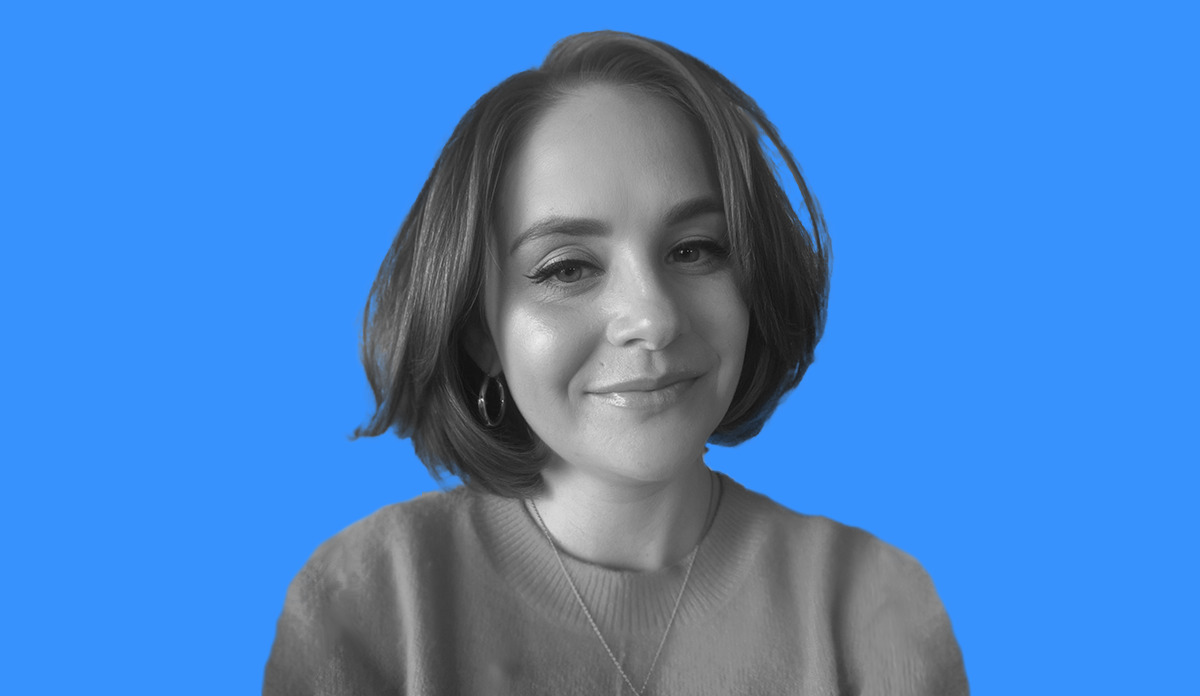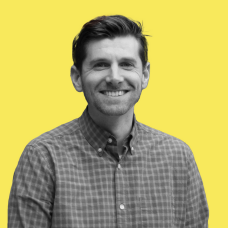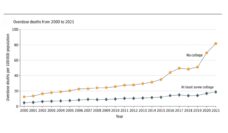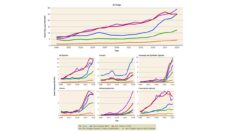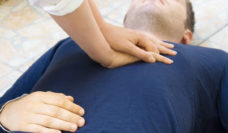Kimber King toyed with the idea of sobriety for years. She would get sober for short periods of time—30 days here, 60 days there. She was on methadone for a few years. She was in and out of rehab a lot. And even though sobriety always felt like something that she had to do, she also really liked using drugs.
King started using heroin at age 17 and continued to use for the next 15 years. In that time, she faced eviction and homelessness, saw her mother face chronic illness, and grieved the loss of her brother. King also survived an overdose as a result of her call to the Never Use Alone hotline, a virtual safe consumption site, and the quick-thinking efforts of the helpline operator and first responders who worked together to save her.
At 31, during the pandemic lockdown, King decided to stop using drugs. Now, a few years have passed, and she has a home in Vermont with her partner Mikey, her 7-month-old daughter Harvey, her Lhasapoo Luna, and many houseplants. She loves gardening, crocheting, and working as a program assistant for the very helpline that saved her life a few years ago.
King started as a volunteer with the Massachusetts Overdose Prevention Helpline shortly after her recovery journey began. As a self-described shy person, King never pictured herself working in a role so far outside her comfort zone. Her reluctant willingness to be an operator came from a desire to offer support for people who use drugs without the judgment or stigma she felt when she was using.
“Going through what I have been through, you see how people are treated, and you learn how the system works,” says King. “You see how people aren’t taken seriously and fall through the cracks. You become just a number, and people expect you to relapse.”
The few people that checked in on King when she was using drugs are the ones that she remembers. Friendly faces at the syringe program made sure she was nourished and hydrated. They were ready for her if she wanted to get tested for HIV or Hepatitis C. They asked what was going on in her life. And they became meaningful connections to the drug-free world to her.
Stephen Murray, King’s neighbor and the paramedic who helped her survive her overdose, was a big part of the community and connection that kept her going. After Murray revived King, the two kept in touch. King continued to use and went back to rehab. But Murray didn’t push her to stop or re-enter treatment; he just patiently and diligently kept communicating.
“Everybody deserves to see the next day. Even if someone is using, that doesn’t make them any less of a person, any less human.”
In the same way that Murray was there for her, King now wants to be there for callers on the helpline. “When we reach out and take people under our wings, those people are the ones that stick around,” she says.
The anonymous helpline, which was started by Murray four years ago, has evolved since King was a caller. It is a first of its kind, state-funded helpline, with a staff of 35 operators actively taking or training to take calls. King, as an employee who has seen both sides of the phone line, knows that her lived experience gives her valuable insight. “I know where callers are at,” she says. “There’s nothing anybody can say to me that I’ve never done or heard myself.”
King also knows what it takes to choose a path toward recovery and recognizes that this path is not for everyone. “You don’t get sober until you want to,” she says. “And a lot of people just don’t want to. In some ways, you like what you’re doing. It’s working for you, even if you know it’s dangerous.”
Part of King’s role as an operator is being on the phone line with callers while they use drugs safely. Sometimes they choose to talk with her about their drug use, but Kimber never offers advice or criticism. She is simply there to listen. “I want people to feel seen. I don’t want people to put up defenses. We are not a police hotline,” she says. “I never want anybody to feel like I’m pushing any ideas on them. I want them to be 100% authentically who and where they are.”
Through her work with the helpline, King strives to promote safety, but above all, strives to bring more humanity to addiction. She knows that the people who call are someone’s loved ones. Her motivation to continue in her role honors her late brother in this way. “Everybody deserves to see the next day,” she says. “Even if someone is using, that doesn’t make them any less of a person, any less human.”
King’s outlook embraces her own experiences. On her calls, she hopes that she can convey an empathy and an openness that makes others feel welcome, supported, and safe. King is grateful to the community that saved her. “My heart is so into this hotline because I am living proof that it works,” she says. “I would not be here if I didn’t make the call.”
Photo provided









